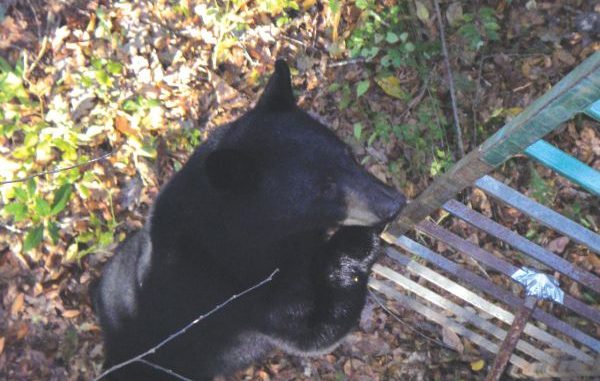
Let the bear know you’re there, biologist says
Just because you’ve never encountered a bear in the woods before while out on a hunt, that doesn’t mean it won’t ever happen.
In fact, according to Maria Davidson, the large carnivore program manager for the Louisiana Department of Wildlife and Fisheries, the odds are that more hunters will eventually cross paths with black bears as their population increases.
“What we’re seeing now is range expansion occurring in a fair number of parishes in the state,” Davidson said. “People are hunting around bears for the first time —possibly in their lives. And whenever that occurs, generally the feeling that I hear form the hunters is that they’re afraid. They’re genuinely afraid for their lives, for the lives of their children or whoever is out on their hunting lease.
“But just like everything else, situational awareness and taking some time to learn a little bit about bears goes a long way in making their experience less fearful.”
The problem for most hunters — especially those who have never hunted around bears before — is lack of familiarity with the animals’ behavior.
“We all know that if a dog approaches me on the street with his hackles up while he’s growling, then he doesn’t like me,” she said. “But if he walks up with his tail wagging and he’s panting, then he likes me. We intuitively know that.
“But we don’t read bear behavior the same way because we haven’t learned it.”
Davidson has spoken with countless hunters who have experienced bear encounters, and watched videos captured by hunters as bears approach their deer stands. One key to remember is just how amazing a bear’s sense of smell really is, she said.
“It’s important for people to understand that first and foremost, bears are opportunistic. And what makes them successful is curiosity driven by an incredible sense of smell,” Davidson said. “So a bear is going to investigate any and everything in its surroundings with its nose. It’s just what they do.
“So when a hunter in a stand watches a bear approach, their assumption is the bear is tracking them to attack them, when in reality the bear is just tracking this foreign smell in his environment. Don’t confuse curiosity with aggression.”
To stay safe in the woods this season, Davidson shared three key tips for hunters:
•Let the bear know you’re there.
Hunters who let bears get a little too close for comfort often silently watch as the bear steadily approaches.
“What I think happens is the hunter is so afraid they don’t say anything, and one minute rolls into two and then into five, and they’ve allowed the bear to get halfway up their ladder stand without saying anything,” she said. “Even though bears have a great sense of smell, if you’re downwind of them, they may not know you’re there. Remember, they don’t see very well, so if you’re in a leaning camo stand in full camouflage, you’re probably camouflaged to the bear.
“So you have to allow him to see you. Typically, you need to stand up, wave your arms and let him know you’re there. Use a strong, firm voice and say, ‘Hey bear, get out of here.’ If you give the bear the opportunity to know you’re there, that curiosity can be solved.”
• Carry bear spray if you’re really concerned about a potential bear encounter.
“If people know they’re in an area with bears and they’re anxious about it and they haven’t been around them enough to interpret their behavior, or if they’re with kids, bear spray is pretty cheap insurance,” she said. “You can buy it over the Internet and many stores carry it now. It allows these people that have these fears and nervousness to breathe a sigh of relief.
“Because you know that no matter what else happens, you can stop that bear from getting any closer to you.”
The spray is effective because of the high amount of pepper spray it contains, she said.
“It’s not like wasp spray — that’s a direct stream. This is a fog, and it’s got so much capsaicin in it that it can absolutely dissuade a charging grizzly bear,” she said. “It’s just a good thing for people that are nervous. What we’re hoping to prevent is people shooting bears because they didn’t know what else to do because they were afraid.”
• Sit back and enjoy the experience.
“The most important thing to understand is seeing a bear while you’re hunting does not automatically mean the bear is going to cause you harm — 99.9 percent of bear encounters are just completely benign,” Davidson said. “If the bear is just ambling through the woods and you have the great experience of watching a bear, just sit there and enjoy it.”
And if you’re watching from your deer stand, remember that a bear heading for you while tracking your scent doesn’t necessarily mean you harm.
“Black bears would generally prefer to run away from a situation — that’s their first line of defense. They would rather run away than attack something,” Davidson said. “But I think that’s why people don’t say anything. They’re afraid if they let the bear know they’re there, then the bear is going to come up and attack them.
“But the opposite is more likely to be true — the bear will either ignore them, or just go the other way. But at least then everybody in that situation knows what’s going on.”


